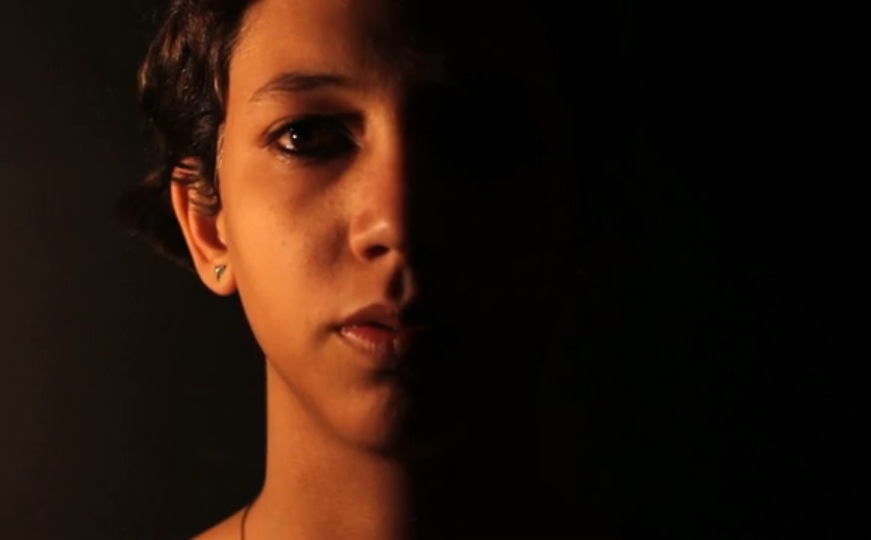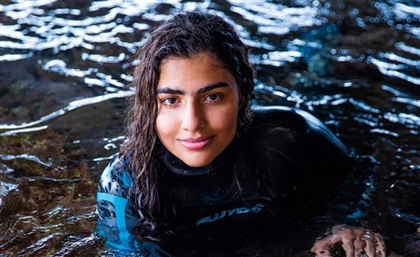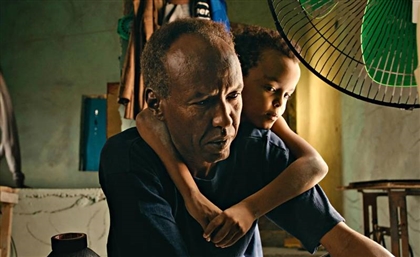Catharsis: A Much Needed Change
Already doing the rounds on the regional film festival circuit, Alia Ayman's Catharsis is a breath of fresh air on the Egyptian indie scene. Karim Rahman talks to the budding director, and, like Ayman, finds more than meets the eye...

Art has a myriad of forms; you can never really say what "defines" art, so to say. It could be a painting, a piece of poetry, rhetoric, a photograph or even a film. As an art student, I'm taught how to appreciate art in all its forms and all its mediums. However, very few pieces impress me anymore. Not to sound like a hot-shot curator or anything, but everything seems to be overdone, or "re-visited" or explored with a different "twist". Nothing really strikes you as much as it used to; the novelty has worn off. However, when I watch a film that slowly and subtly, yet ever so surely, creeps into the dark recesses of my mind and starts shocking me in ordered, sequential steps, that's when I really start paying attention. That's exactly what Alia Ayman's film, Catharsis: A Self-Portrait, offered me.
The film's message is spiritual acceptance of one's self; how one can finally come to terms with the constant struggle of inner self and outer environment (the ego and the super ego) and the process of catharsis, which is a spiritual and emotional cleansing of sorts. Ayman takes us into a visual journey with her as she questions all her paradigms, all societal constraints and predispositions imposed upon her. The switch between hazy visuals and sharp, HD footage clearly underlines the struggle she faces between the religious, Egyptian good girl image her family and her society tries to shape her into becoming and the westernised, eclectic and rebellious self she feels more at ease with. Questioning deep rooted beliefs of spirituality, religion and self-acceptance, Catharsis takes the viewer through an aesthetically thrilling journey and a deeply spiritual one that has the viewer questioning their own deeply rooted beliefs.
Honestly, this is probably one of the best projects I've stumbled upon in a while. The problem with Egyptian artists and the art scene in general is that we're still tiptoeing around a lot of sensitive issues (politics, sex, religion). Yes, the revolution saw us break free of a lot of these sensitivities but there's still some trepidation around how you're going to portray whatever issue it is you're discussing. Ayman, however, breaks free of all that and bravely (and with shocking sincerity) puts herself face-to-face with her worst enemy: herself. Already screened at film festivals in Egypt and the region, I talk to Ayman about her inspirations and the reactions Catharsis has got so far:

What made you decide on Catharsis as the title of the film?
It took me a while to decide on a title. I was almost going to fall into the horrible cliché of calling it Untitled, but when I was almost done editing, after putting it all together, and watching it again the word just popped up in my head. Catharsis! Because that's what it felt like; I was "cured.” Not once did it occur to me that I will be in front of the camera, let alone expose myself in such a personal way for the world to see. I felt lighter, renewed, like I had taken all the piles of insecurities, destructive loopholes, and intense conflicts of my adolescence and early twenties out of their very well hidden alley in the spirals of my mind and exposed them to myself and to the audience, and that was when they kind of vanished. That was when I felt like I had undergone my much needed catharsis. Plus, I am a psych major after all, so psychology never really left me.
What inspired the movie? Has it been floating around your head for a while or was it a spur of the moment decision?
I always knew that I was only into writing and filmmaking to express myself; the amount of time I spend indulging in "introspection", and self directed psychoanalysis and criticism is just ridiculous and is often too much for my own good. So I always knew there was going to be an autobiographical element in almost anything I create, but I never thought it will be that explicit, that personal.
But the idea of the film came after weeks of frustration. I had a deadline to write and shoot a 10-minute movie. I was at this film workshop at NYU and there had to be a final project. I spent almost two weeks swaying intensely between a killer writer's block and extremely lame scripts. Whenever I got an idea, I either rejected it myself because I wasn't feeling it, or my best friends, Nada El Shazly (who did the music for the film) and Sama Waly (the art director of my first film) would kill it for me in overseas conversations because my script was beyond lame. Then it just happened; I have been lingering for quite a while at rock bottom so I decided to treat myself with a trip to the hairdresser. I had finally decided to do it; to pull a Halle Berry and cut it off. I would say this was the first step on the road to Catharsis. So when I did it, it broke something, an old repetitive pattern that entailed thinking and wanting to do stuff that I never actually did. That was when I got the idea. I left the hairdresser, hardly able to recognise myself and I knew there and then that this is my film, I was going to make a film about myself and it felt great. From there the hard work started. I started working on a visual concept which also came to me in random flashes of epiphany, and then I was all of a sudden really making a film about myself, for myself above all. I knew it was going to liberate me and that was exactly what happened.
How long did it take you to make the movie?
It's hard to be precise, but I had three full days of shooting, besides my trips with my camera on random occasions where I took the footage of the lights, the streets, the mask, etc. I was shooting aimlessly but I knew I was going to make something out of this footage. I spent about two weeks editing, every single day for 12 hours then half way through I changed my mind about the ending, so I interviewed myself about five days before the deadline and got that on camera and it became the ending of my film.
I also had my two beautiful friends Mostafa Talaat and Habiba Effat shoot stuff for a day in Cairo and send me the footage via Dropbox, so roughly, I'd say with the preproduction, shooting, editing, subtitling and sound mixing it took about two months.
In your own words, how would you describe the movie?
That's a tough one... I think it is easier to describe what this film is not. It is not a film that discusses societal issues, women's rights, or seeks glory by breaking taboos. I will admit to being completely self-centered while making it and I did not think about any of that. I did not even think I was going to screen it in Egypt, or anywhere else for that matter because I honestly did not think anyone will relate to it. But yeah, some people keep trying to put me in this box of the audacious girl who hates religion and isn't afraid to say the word sex. This is not what the film is about, it is a just an intimate honest portrait of a person, who just happens to be a woman, an Egyptian, a Muslim, who was lucky enough to discover the beauty of incessant doubt and restless questioning of anything and everything. That's all.

How did your family react to the film?
They were all surprised. My dad was very happy with it, and so were my grandparents and my sister. My mother, who was honestly my main concern, she was silent for a bit (I made her watch it on YouTube when I was still in New York), she praised the film as a film, in terms of production and technique and at first she said "bravo" but I wouldn't have it. I wanted more. I had been trying to prepare her psychologically for the shock of her life when I was making the film, so I know this kind of toned down the intensity a bit, but she still was surprised. She quickly got over it though. She told me she was hoping I'd change into the someone more "normal" after my trip, but I laughed and told her "Mom, I am not in Mecca, I am in New York City so becoming normal isn't really the effect you should be expecting!" She laughed and then said she was proud and that I had all her support, which was very moving I must admit.
Which foreign film festivals or institutes are you planning on screening the film at?
The film had already been screened in a few festivals over here; it won the jury award at the French Cultural Centre Film Festival and at the Ismailia International Film Festival. It's also been screened at Cabriolet Film Festival in Beirut and had a few screenings around Egypt as well. So I am happy about that, but now I want to take it to its second birthplace. I am applying to the New York Film Festival at the Lincoln Center and I really hope it gets into that one. I have also applied to a bunch of other festivals in New York, San Francisco, Miami, LA and Toronto. Next comes Europe; I had already applied to the Camden International film festival, but there is still more work to be done. France and the UK are on top of the list, but I am still researching.
What are your future plans? After Catharsis, where do you go from here?
Honestly, I am all over the place at the moment with many potential projects; we talked about a documentary film with Like Jelly. I also have a feature script to write and a short film that also is still in the writing phase. I am thinking of doing my Masters in a completely unrelated field, or just traveling for a bit. It's still vague because I am still overwhelmed with the feedback on Catharsis, so I feel like I need to take it slow and make sure I remain true to myself.
You can watch Catharsis on this link. Password: kitsch
- Previous Article I Got Banged!
- Next Article Scoot Your Way Across Egypt
























